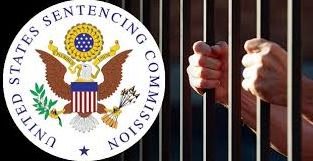United States v. Betts
886 F.3d 198 (2d Cir. 2018)
Second Circuit Court of Appeals
Decided on March 28, 2018
District courts possess broad discretion in imposing conditions of supervised release. A district court’s discretion to impose special conditions of supervised release is not untrammeled, and Court of Appeals will carefully scrutinize unusual and severe conditions.
Issue: Whether the (newly) imposed sentence of four years of supervised release is substantively unreasonable and whether the District Court erred in imposing a special conditions relating to alcohol and drugs.
Holding: The Court of Appeals for the Second Circuit held that the imposition of an additional four years of supervised release was not substantively unreasonable and the District Court did not err in imposing a special condition requiring Betts to submit a periodic drug test. However, the Court held that a total ban on alcohol was not reasonably related to the nature and circumstances of Betts’ offense.
Facts: Defendant Betts was sentenced to ten months’ imprisonment and four years of supervised release with special conditions. The sentence at issue stems from violations committed while Betts was already on supervised release from another conviction (conspiracy to commit bank fraud). The original sentence imposed for the bank fraud conviction was 24 months in prison, followed by five years of supervised release.
The more recent violations included two arrests for driving without a license and failure to make required restitution payments. In addition, Betts later admitted to failing to notify his probation officer within 72 hours of being arrested. Betts pleaded guilty to failing to notify his probation officer and was subjected to a maximum term of five years of supervised release. The District Court ordered Betts to refrain completely from consumption of alcohol while under supervision. The Court also required periodic drug testing from Betts, emphasizing a zero-tolerance order on the use of any drugs at all.
On appeal, Betts argued that the sentence of four years of supervised release was substantively unreasonable and that the District Court erred in imposing the special conditions involving drugs and alcohol.
Analysis: The Second Circuit reviewed Betts’ sentence for substantive reasonableness under a deferential abuse of discretion standard. Under that standard, a sentence is only unreasonable if it “cannot be located within the range of permissible decision.” United States v. Bonilla, 618 F.3d 102, 108 (2d Cir. 2010).
Betts presented this Court with three reasons as to why his sentence was substantively unreasonable: 1) his violation was not sufficiently egregious to warrant an additional four years of supervised release; 2) the District Court abused its discretion when it sentenced him to a term at the upper end of the applicable Guidelines range; 3) the District Court erred in discrediting defense counsel’s mitigation arguments.
The Court found Betts’ “insufficiently egregious” argument unpersuasive. Since the District Court made a careful assessment of the factual basis for Betts’ violation as well as his personal history and character, the Court’s imposition of four years of supervision was not an abuse of discretion. Among other factors, the District Court considered Betts’ repeated failure to make restitution payments and the fact that he escaped from supervision after his most recent arrest.
Unconvinced, again, by Betts’ next argument, the Second Circuit concluded that sentencing Betts at the upper end of the applicable Guidelines range was not an abuse of discretion. Both the imposed term of imprisonment and the term of supervised release were within the Guidelines range and Betts’ sentence fell within the broad range of reasonable sentences given his behavior while on supervised release.
Last, the Court rejected Betts’ argument that the District Court erred in discrediting some of defense counsel’s mitigation arguments. The Court noted that at sentencing, defense counsel brought before the District Court claims that Betts was taking serious steps toward better behavior. However, the District Court was not convinced because Betts’ actions contradicted these statements. Thus, the District Court’s decision was not an abuse of discretion because it properly weighed the evidence.
While the Second Circuit was unmoved by Betts’ initial claims of abuses of discretion, it saw merit in Betts’ ‘special conditions’ argument. A sentencing court may impose special conditions that are reasonably related to “the nature and circumstances of the offense and the history and characteristics of the defendant” ; “the need for the sentence imposed to afford adequate deterrence to criminal conduct” ; “the need to protect the public from further crimes of the defendant” ; and “the need to provide the defendant with needed educational or vocational training, medical care, or other correctional treatment in the most effective manner,” and which “involve no greater deprivation of liberty than is reasonably necessary” for these purposes. U.S. Sentencing Guidelines § 5D1.3(b); see also United States v. Myers, 426 F.3d 117, 123-25 (2d Circ. 2005).
First, Betts argued that a special condition prohibiting alcohol use is not reasonably related to either his underlying crime or the violation and the ban involves greater deprivation of liberty than necessary. The Second Circuit agreed with Betts and concluded that there was no evidence to suggest that Betts abused alcohol. The District Court also failed to clarify why it imposed this special condition other than the fact that it was not happy with Betts’ behavior. Thus, the Second Circuit vacated the District Court’s special condition ordering Betts to ban “all alcohol use.”
Betts also urged the Second Circuit to vacate the District Court’s special condition requiring substance abuse testing with “zero tolerance of the use of any drugs at all.” Betts claimed that the ban referred to all drugs, including prescription drugs. However, looking at the entered judgment, the Second Circuit concluded that the actual ban was only meant for controlled substances and not prescription drugs. The Court concluded that such a ban was “entirely appropriate.”
